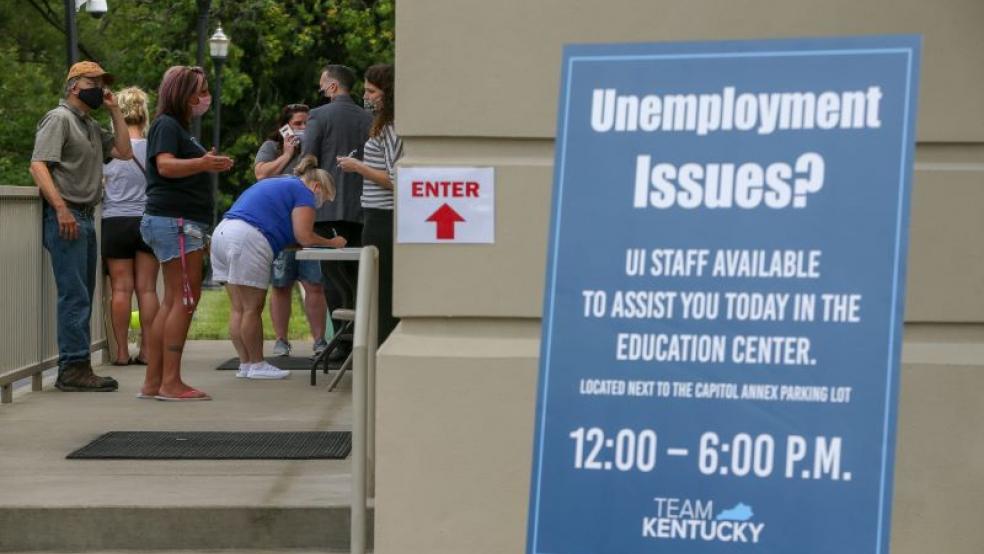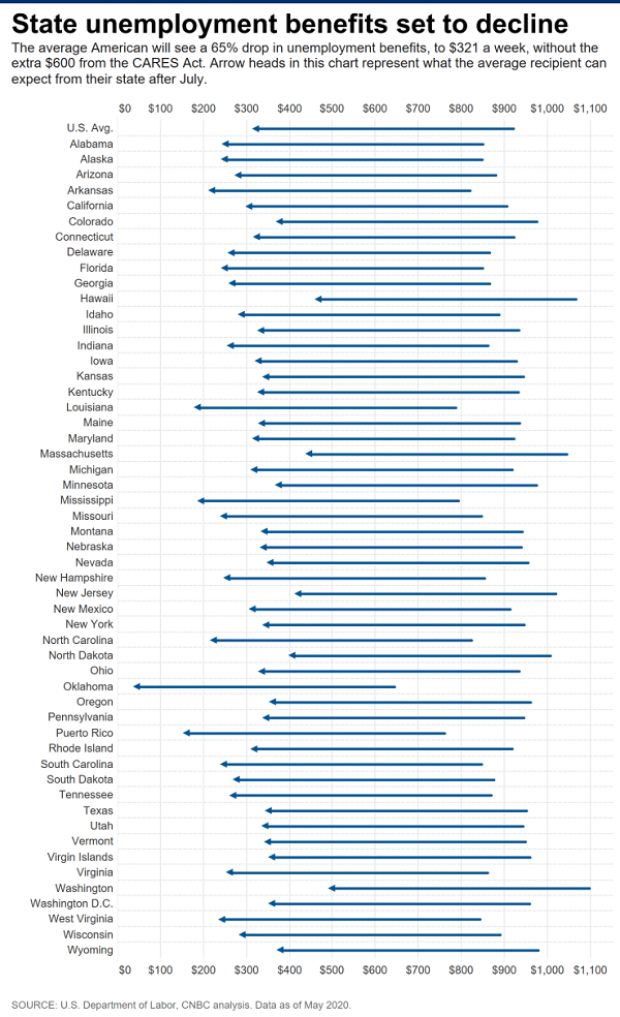To the dismay of millions of jobless Americans and more than a few economists, the $600 per week in enhanced unemployment benefits for all jobless Americans officially expired Friday. While lawmakers are attempting to negotiate a possible replacement program, which was estimated to cost $260 billion when it was created, a sudden loss of personal income and spending in the economy is now guaranteed, lasting for as long as it takes for Congress and the White House to reach an agreement on what to do next.
How large will those income losses be? CNBC provided a chart (see below) that shows the sharp reduction in unemployment benefits in all 50 states. Nationally, the unemployed have been collecting about $920 on average, which will drop to roughly $320. Each state is different, providing different levels of support to the unemployed, but the loss of income will be significant everywhere. In Alabama, for example, average unemployed benefits will fall from about $850 per week to $250 per week. In Massachusetts, average payments will drop from $1,050 to about $450.
Measured as a percentage, and the damage to individual incomes becomes even clearer. In states that provide relatively stingy benefits, such as Oklahoma and Louisiana, unemployed workers could lose more than 75% of their total benefits overnight.
The economic hit: While some Republican lawmakers and a handful of conservative economists insist that enhanced unemployment benefits are hurting the economy by paying people not to work, most mainstream economists say that the unemployment program has played a major role in holding off a depression-like catastrophe, and are still very much needed to keep the jobless and the economy from falling deeper into a hole. Economist Ernie Tedeschi of Evercore ISI recently calculated that if the enhanced unemployment benefits are allowed to expire without replacement, it would shrink the economy by 2% and reduce employment by 1.7 million by the end of the year, relative to a scenario in which they are extended. “Even a partial compromise -- $300 per week for the rest of the year -- would still be an economy 1% smaller by year-end with 800,000 fewer jobs,” Tedeschi said.





